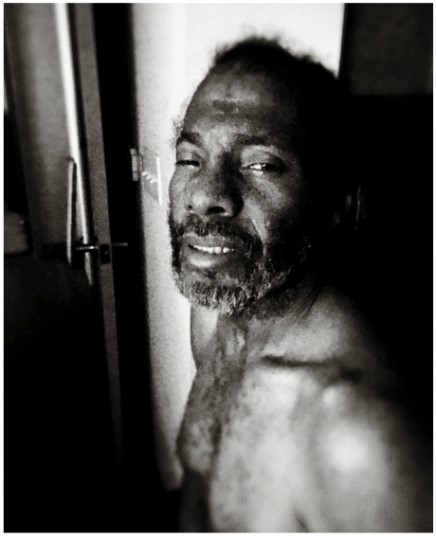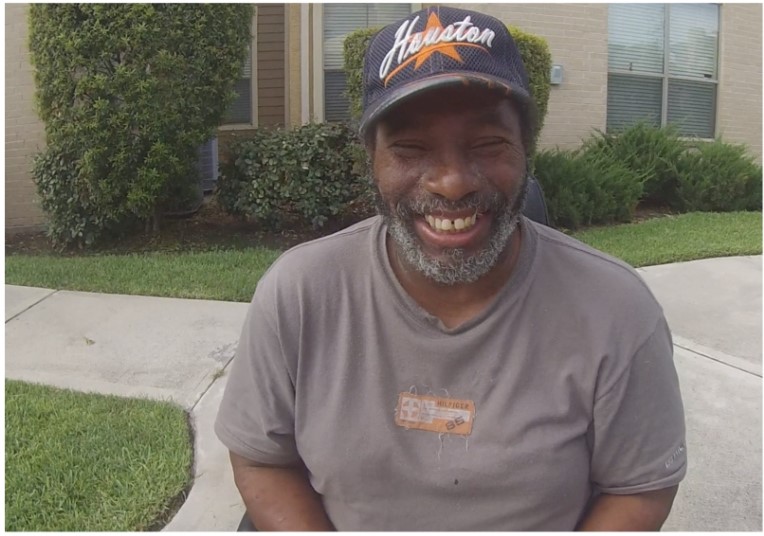
Published On: December 2016 in Episcopal Health Foundation. Read the story here.
He was sitting in his old wheelchair with his phone in his hand. He was grey, had difficulty breathing and was very confused. We immediately called 911.
Timmy was on the outside of the health system looking in. And it almost cost him his life.
Timmy is a single father living in Houston. He's HIV-positive and lives with amputated legs. But in the years before his health was spiraling downward, the only healthcare he received was when he was so sick he had to be rushed to the emergency room. Timmy lived near the largest medical center in the world, but when it came to getting access to a system that could help him care for serious, chronic health conditions, Timmy didn't know where to turn.
"You know if they hadn't stepped in, I don't know what would have happened," Timmy said.
An intervention team from the Patient Care Intervention Center (PCIC) found Timmy close to death right at his front door. The team had identified him as "super-utilizer" - a patient who went to emergency rooms in Houston more than 10 times in one year. In Harris County, there were more than 6,000 "super-utilizers" in 2013 alone.
The PCIC team followed Timmy to the hospital. They monitored his daily progress and after he was released, the team made visits to his apartment to coordinate all aspects of his healthcare. They connected him with a primary care physician, helped him get access to needed medications, secured home health providers, and even went along to doctor's appointments.
Timmy was now part of a new health system that provided him with invaluable, intensive, preventive care. This new coordinated system through PCIC addressed the underlying causes of his health problems, long before the symptoms became severe.
"Why is it that we can easily dismiss sick people and not care for them," said Dr. David Buck, founder and president of PCIC. "Our health system is badly broken. It's widely expensive with some of the poorest outcomes. PCIC works to systematically provide the most vulnerable people with more access to a more effective kind of care."
EHF supports PCIC with both funding and collaboration. It's just one way we're working with nonprofits, health departments, people of faith, philanthropic institutions and community members to create a system that ensures Texans not only receive quality medical care, but that the places they live and work enable them to get and stay healthy.
"EHF doesn't look at itself as a funder," Buck says. "The foundation looks at itself as a way to begin to change the system."
Through grants, research, community engagement and partnerships with Episcopal churches, EHF is helping transform communities by making long-lasting improvements to the systems that shape and influence the health of our residents.
"I would say I came a long way from where I was," Timmy said.
Timmy is now much happier and healthier. He's able to watch his young son grow up. He's connected to a system of health that helps him successfully manage his medical conditions, not just react to symptoms when they become severe.

Addressing critical needs for Texans like Timmy is why EHF was created. He's one reason we're working so hard to focus on new and different ways to improve population health by changing the way health systems work for those most in need.


